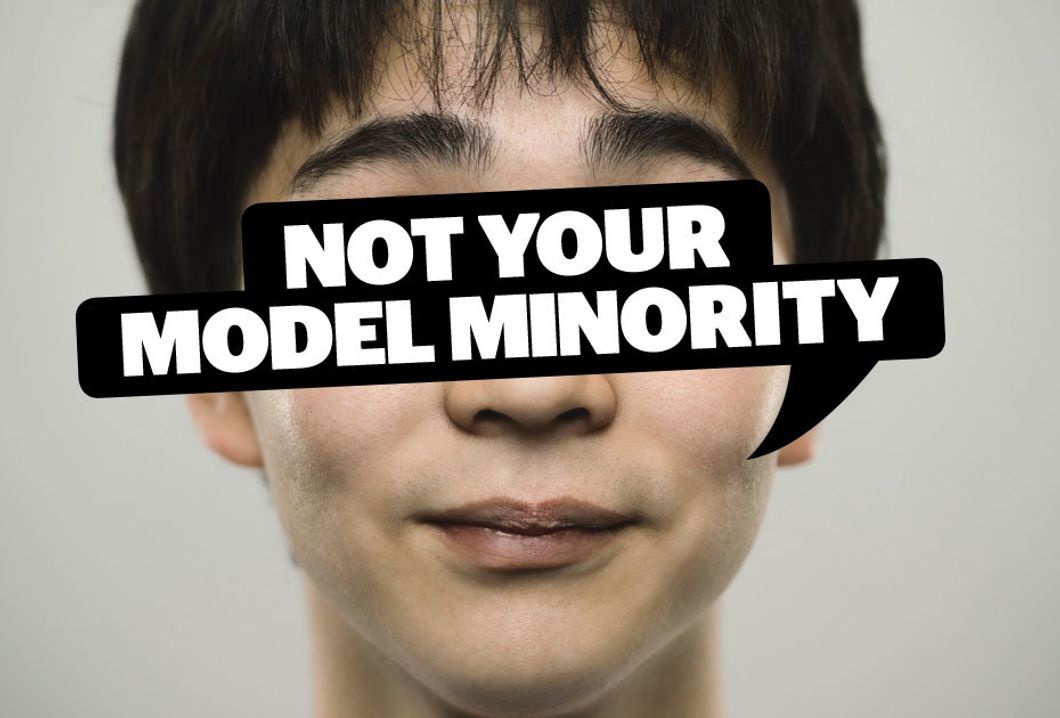So what exactly is the model minority myth?
Well, model minority is a demographic group who are perceived to have higher socioeconomic success than the rest of the population. It can be measured by academic accomplishments and wealth. The model minority myth typically applies to Asian-Americans (South and East Asians). It's the stereotype that all Asians are very smart, hardworking, and essentially the 'perfect' minority. Some may say "what is the harm in thinking like that?" and "Isn't this a good stereotype?" Well, there are several reasons why this thinking is harmful to Asians.
Reason #1 The Pressure to Succeed
The "studious Asian American" who excels academically, often in STEM, has been a long-standing stereotype in the American education system. When these ideas become enforced, it leads to the belief that Asians only do well because they're part of a group who are high achievers. In essence, they're smart because they're Asian, not because they, themselves, are smart. For several Asians, it means to constantly excel in academics and being afraid to reach out for help when you need it. As this belief becomes ingrained, it leads to many Asians feeling that their self-worth and value is closely tied to their academic accomplishments. But when an Asian student gets a bad grade for the first time, it essentially feels like an attack on their identity.
Reason #2 The model minority myth takes a toll on mental health
Since there is such pressure to achieve academically, it can lead to mental health issues. According to Shanni Liang, a counselor for a mental health hotline in New York City, "Usually the model minority does cause a lot of anxiety in a lot of the second generation...We do get a lot of callers that have their first mental health breakdown in college." Asian-Americans parents sacrifice a lot to come to America and provide a better life for their child. In a sense, it feels like having good grades is showing your parents that their sacrifice wasn't for nothing. It's why many Asian Americans can't express their feelings with their parents without it sounding like they're ungrateful. Young Asian Americans tend to not seek professional help for their mental health problems as even that is looked down upon in many Asian cultures. This harmful stereotype leads Asian Americans to severe mental health issues that are often untreated.
Reason #3 The myth fails to recognize socioeconomic and education disparities among Asian-American communities.
While the Model Minority Myth continues to say that Asian-Americans are prospering, it fails to acknowledge the socioeconomic and education disparities among different Asian-American communities. For example, Southeast Asian-Americans have the highest high school dropout rates of any group in the US. Roughly 38% of Laotian-Americans and 40% of Hmong-Americans do not complete high school. These groups also earn below the national average. The generalization of Asian-Americans being "successful" doesn't replace the fact that many Asian-American communities continue to face inequalities.
The Model Minority label harms Asian-Americans and marginalizes other Asian-American communities. In an effort to fight against the myth, the Asian-American youth have started to raise awareness about the issue at hand. The first step to fight against the model minority myth is to ask for help.

















